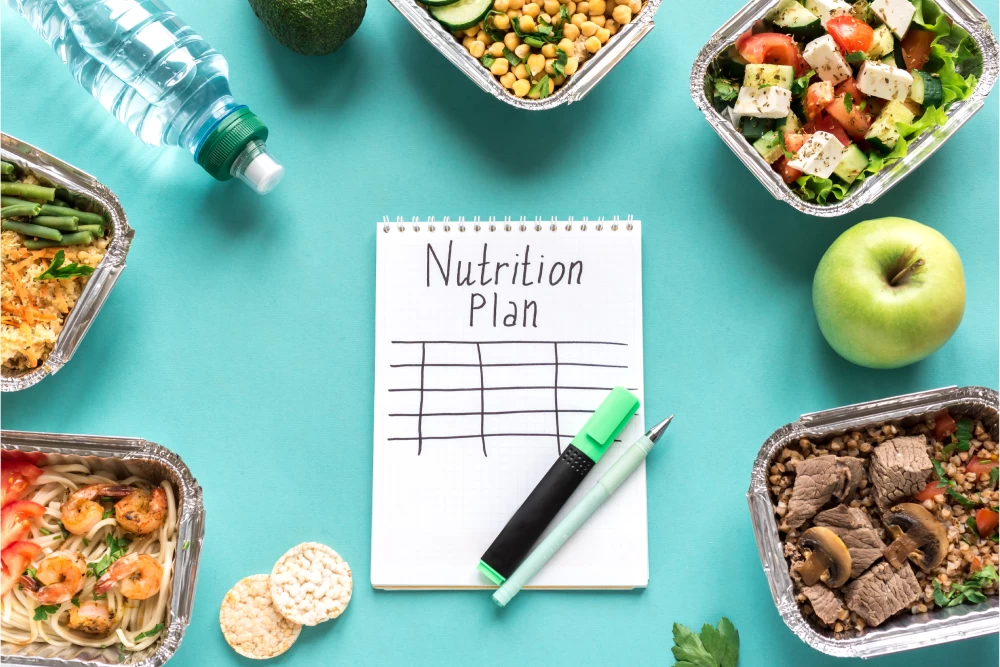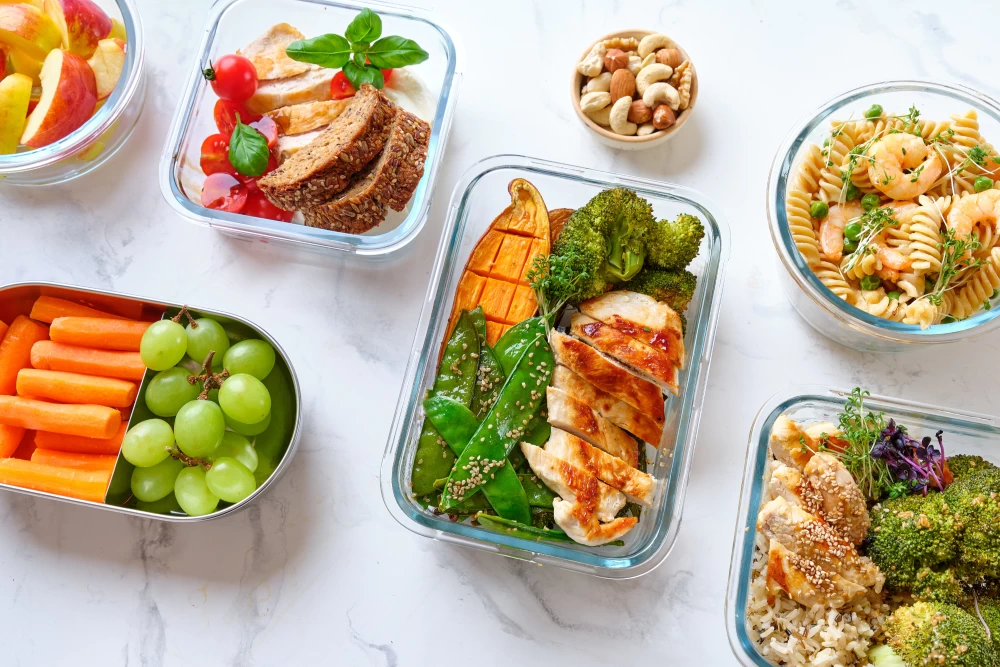
- 24th March 2023
Table of Contents
Fatty Liver Diet
When it comes to fatty liver disease, diet plays a crucial role in managing the condition. Meal planning is an essential strategy that can help you maintain a healthy weight and avoid foods that are harmful to your liver. To plan your meals, start by incorporating plenty of fruits, vegetables, lean protein sources, and whole grains into your diet. These food groups provide essential nutrients like vitamins, minerals, and fiber that are beneficial for liver health. Avoiding processed foods high in fat, sugar, or salt is also important when meal planning for a fatty liver diet. It's also recommended to limit alcohol intake as it can worsen liver damage. When choosing fats for cooking or dressing salads, opt for healthy fats found in nuts, seeds, avocados or fish instead of saturated fats from animal products like butter or cream. Lastly but importantly consider small frequent meals throughout the day rather than large meals at once.
What is a Fatty Liver?
A fatty liver is a condition that occurs when there is an accumulation of fat in the liver cells. This can happen due to excessive alcohol consumption or due to other causes, such as obesity, high blood sugar levels, and high triglyceride levels. Fatty liver disease is common in people who are overweight or obese and those who have diabetes or metabolic syndrome. Meal planning for a fatty liver diet requires avoiding certain foods that can exacerbate this condition. These include processed foods, fried foods, sugary drinks, and red meat. Instead, it's important to focus on eating nutrient-dense foods that promote liver health such as fruits, vegetables, whole grains and lean protein sources like fish and poultry. To plan meals for someone with a fatty liver diagnosis it's important to choose healthier cooking methods such as grilling or baking instead of frying. It’s also recommended to avoid consuming too much salt as this can cause water retention in the body which may lead to additional health problems such as edema. With careful meal planning and adopting healthy lifestyle changes including regular exercise one can help manage their symptoms of fatty liver disease.
Benefits of Meal Planning
Meal planning is a crucial aspect of maintaining a healthy diet, and it can be especially beneficial for those with fatty liver disease. By planning meals in advance, individuals can ensure that they are consuming foods that support liver health while avoiding those that may exacerbate their condition. Meal planning also helps to prevent impulse purchases of unhealthy foods and reduces the likelihood of skipping meals or resorting to fast food options. In addition to promoting healthier eating habits, meal planning can save time and money. By taking the time to plan out meals for the week, individuals can make more efficient trips to the grocery store and avoid overbuying unnecessary items. This not only saves money but also reduces food waste. Additionally, having pre-planned meals eliminates the need to spend time thinking about what to cook each day, allowing individuals more time for other activities. Finally, meal planning allows for greater control over portion sizes and calorie intake. By measuring out ingredients in advance and sticking to planned portions, individuals can better manage their weight and overall health. This is especially important for those with fatty liver disease as excess weight can worsen symptoms and lead to further complications. Overall, incorporating meal planning into a fatty liver diet is an effective strategy for improving health outcomes while saving time and money in the process.

Tips for Meal Planning
1. Start by researching the right foods: When it comes to meal planning for a fatty liver diet, it's important to know which foods are good for you and which aren't. Do some research on the best foods to eat for your condition, such as leafy greens, whole grains, nuts and seeds. Avoid processed foods or those that are high in sugar, salt or unhealthy fats.
2. Plan your meals in advance: Planning meals ahead of time can be incredibly helpful when it comes to sticking with a healthy eating plan. Take some time each week to sit down and plan out your meals for the upcoming days. Make sure to include plenty of fruits and vegetables as well as lean proteins like fish or chicken.
3. Prep your meals ahead of time: Meal prep can make sticking with a fatty liver diet much easier. Cook up large batches of healthy options like roasted vegetables or grilled chicken breasts at the beginning of the week so they're ready to go when you need them throughout the week. You can also pre-portion snacks like nuts or sliced fruit so you have something healthy on hand when hunger strikes between meals.
By following these tips, meal planning for a fatty liver diet doesn't have to feel overwhelming or daunting. With a little bit of preparation and some knowledge about which foods are good for you, you'll be able to stick with your eating plan and improve your overall health in no time!
Healthy Foods to Eat on a Fatty Liver Diet
When planning meals for a fatty liver diet, it's important to focus on nutrient-dense foods that will support liver health. One of the best categories of foods to eat are fruits and vegetables. These should make up the majority of your plate at mealtimes, with an emphasis on leafy greens like spinach and kale, as well as brightly-colored produce such as berries and oranges. Another key element of a healthy fatty liver diet is lean protein. This can be found in sources such as chicken breast, turkey, fish like salmon or tuna, tofu, lentils or beans. Protein is essential for maintaining muscle mass while losing weight and keeping you feeling full between meals. Finally, it's important to incorporate healthy fats into your fatty liver meal plan. Good options include avocadoes, nuts (in moderation), seeds (such as chia seeds) and olive oil. Omega-3s should also be included in this category - they're known to reduce inflammation which can help improve overall liver function over time. Incorporating these healthy choices into your daily routine can go a long way toward supporting liver health while also promoting general wellness!
Foods to Avoid on a Fatty Liver Diet
When it comes to meal planning for a fatty liver diet, it’s important to know which foods to avoid. One of the most important things to cut out is alcohol. Alcohol consumption can lead to inflammation and damage of the liver, which can exacerbate fatty liver disease. Additionally, processed foods should be avoided whenever possible since they’re typically high in unhealthy fats, sugar, and salt. Another food group that should be limited or avoided completely is red meat. Red meats are known for being high in saturated fat, which can contribute to the development of fatty liver disease. Instead, opt for lean proteins such as chicken breast or fish. In addition, sugary drinks like soda and energy drinks should be eliminated from your diet entirely since they contain high amounts of added sugars that can worsen insulin resistance leading to further complications with your liver. By avoiding these specific food groups along with others recommended by your doctor or dietician on a fatty liver diet plan; you’ll be able to prevent further damage while promoting healing of the liver over time through proper nutrition management techniques.
Conclusion
In conclusion, meal planning for a fatty liver diet can be challenging but highly beneficial. By incorporating healthy and nutrient-dense foods into your diet, you can improve liver function and overall health. When creating a meal plan, it is important to focus on whole foods such as fruits, vegetables, whole grains, lean proteins, and healthy fats. Additionally, limiting processed and high-fat foods can help reduce inflammation in the liver. It is also essential to stay hydrated by drinking plenty of water throughout the day. When possible, opt for low-sugar drinks such as herbal tea or sparkling water. Lastly, consistency is key when it comes to maintaining a healthy diet for fatty liver disease. By sticking to a meal plan and making small changes over time, you can make significant improvements in your health and well-being. Remember to consult with your healthcare provider before starting any new dietary changes or exercise routines.














